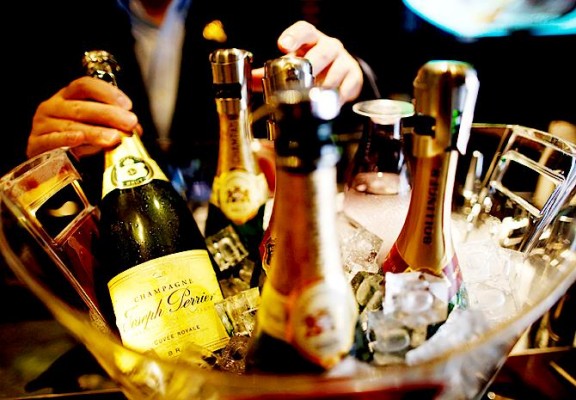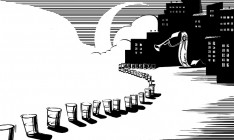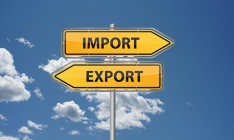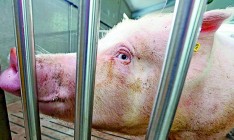Business
SanctionsThe Ministry of Economic Development and Trade is blockading alcohol importers

Under the current Tax Code importers can purchase excise labels and can only send them to manufacturers for gluing them on their products. However, not all suppliers follow these rules. Officials saw in this a violation of the requirements of the Tax Code (Article 227.4) and a threat to the national security.
Importers complain that they repeatedly tried to initiate revision of this provision of the Tax Code as it makes no sense. “Practically no alcohol producers abroad have automatic equipment for marking products with Ukrainian excise labels,” explains PR manager of Vinfort Ihor Teryokhin. This situation exists since the share of goods imported to Ukraine is less than 1% of total output, he adds. In addition to that, excise labels from Ukraine do not correspond in size with any labels in the world, which is why many manufacturers have no technologies for gluing them. “As a result, producers either glue the labels manually and then due to their lack of knowledge of the language, they make serious mistakes or hire special logistic companies for the job,” says Teryokhin.
General Director of Vitis Group Serhiy Mazur is convinced that the clause on the rules of gluing excise duties was deliberately included in the Tax Code to “scare away importers”. Before 2010 there was no such clause in the code. According to Mazur’s calculations, the excise duty per bottle of imported wine is less than UAH 0.01. However, in order to import this bottle to Ukraine, there is a surcharge of UAH 10. “You need to pay for the excise label, which is around UAH 0.3. Gluing it on the bottle costs around EUR 0.20 and there are additional expenses for logistics. This money remains abroad and does not make it into the national budget,” Mazur complains.
Importers knew the risks when they transferred the label of the excise duty to third parties, says Director of the Wine Growers and Wine Makers of Ukraine Association Serhiy Mykhailechko. “The law is the law and nobody is exempt from responsibility for the failure to observe it,” he concludes.
To the prejudice of quality
Today, around 25 companies import alcohol to Ukraine. In particular, last year 403,300 dal of wine was imported into the country, the State Statistics Service reported. According to information that Capital possesses, soon the list of market players that will have the right to supply alcoholic beverages to Ukraine will be extended. “At the moment adjusted list of companies engaged in foreign trade against which sanctions will be applied is being compiled,” a top manager of one of the importers, who requested anonymity, told Capital.
Teryokhin emphasized that Vinkroft is preparing a lawsuit to contest the decision of the Ministry of Economic Development and Trade on the suspension of foreign trade operations. However, the lawyers could not say when the company will renew its operations. The temporary suspension of foreign trade cannot be more than three months, while extension of the sanction is possible exclusively through a court of law, says managing partner at the L.A. Group law firm Oleksandr Shkelebei.
Experts interviewed by Capital are not confident that domestic producers will benefit from the troubles of importers. “Even if the operation of suppliers is suspended for an extended period, they will most likely be quickly replaced by other companies,” says Mykhailechko.
Mazur predicts that if the issue of import supplies is not settled soon, the suppliers of cheap and poor quality products will replace the big players on the alcohol market. When the newspaper went to print the Ministry of Economic Development and Trade and the State Security Service (SBU) did not provide any commentary.






 of the agreement of syndication with Financial Times Limited are strictly prohibited. Use of materials which refers to France-Presse, Reuters, Interfax-Ukraine, Ukrainian News, UNIAN agencies is strictly prohibited. Materials marked
of the agreement of syndication with Financial Times Limited are strictly prohibited. Use of materials which refers to France-Presse, Reuters, Interfax-Ukraine, Ukrainian News, UNIAN agencies is strictly prohibited. Materials marked  are published as advertisements.
are published as advertisements.